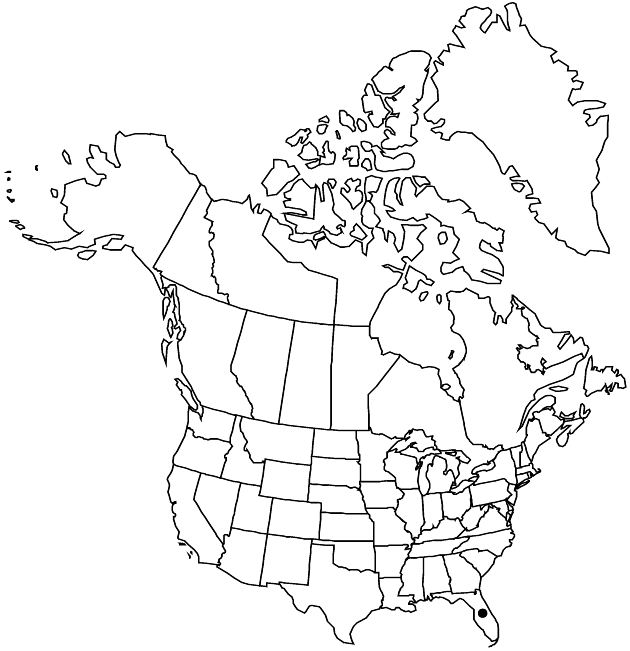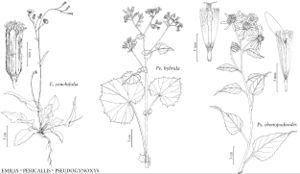Difference between revisions of "Pseudogynoxys chenopodioides"
Brittonia 7: 56. 1950.
Basionym: Senecio chenopodioides Kunth
Synonyms: Senecio confusus Britten
Treatment appears in FNA Volume 20. Treatment on page 608.
FNA>Volume Importer |
FNA>Volume Importer |
||
| Line 29: | Line 29: | ||
|elevation=0–100 m | |elevation=0–100 m | ||
|distribution=Fla.;Mexico;West Indies;Central America. | |distribution=Fla.;Mexico;West Indies;Central America. | ||
| − | |discussion=<p>Pseudogynoxys chenopodioides is widely cultivated as an ornamental. In Florida, it persists after cultivation; it may be encountered elsewhere along the Gulf Coast (a report from southern Texas has not been confirmed).</p> | + | |discussion=<p><i>Pseudogynoxys chenopodioides</i> is widely cultivated as an ornamental. In Florida, it persists after cultivation; it may be encountered elsewhere along the Gulf Coast (a report from southern Texas has not been confirmed).</p> |
|tables= | |tables= | ||
|references= | |references= | ||
| Line 54: | Line 54: | ||
|publication year=1950 | |publication year=1950 | ||
|special status= | |special status= | ||
| − | |source xml=https://jpend@bitbucket.org/aafc-mbb/fna-data-curation.git/src/ | + | |source xml=https://jpend@bitbucket.org/aafc-mbb/fna-data-curation.git/src/8f726806613d60c220dc4493de13607dd3150896/coarse_grained_fna_xml/V19-20-21/V20_1364.xml |
|tribe=Asteraceae tribe Senecioneae | |tribe=Asteraceae tribe Senecioneae | ||
|genus=Pseudogynoxys | |genus=Pseudogynoxys | ||
Revision as of 15:20, 18 September 2019
Leaves: petioles mostly 1–3 cm; blades mostly 2–8(–12) × 1–5(–7) cm, bases broadly cuneate to truncate or rounded, apices acuminate to attenuate. Peduncles mostly 3–8+ cm. Calyculi of lance-deltate to filiform bractlets 2–10 mm. Involucres 8–12 × 12–20(–25+) mm. Phyllaries puberulent (hairs crinkled), glabrescent. Ray corollas: laminae 12–20+ mm. Disc corollas 8–12 mm, lobes 1.5–2.5+ mm. Cypselae (2–)4 mm; pappi 3–8+ mm.
Phenology: Flowering year round, mostly winter.
Habitat: Disturbed sites, waste grounds
Elevation: 0–100 m
Distribution

Fla., Mexico, West Indies, Central America.
Discussion
Pseudogynoxys chenopodioides is widely cultivated as an ornamental. In Florida, it persists after cultivation; it may be encountered elsewhere along the Gulf Coast (a report from southern Texas has not been confirmed).
Selected References
None.
Lower Taxa
None.
